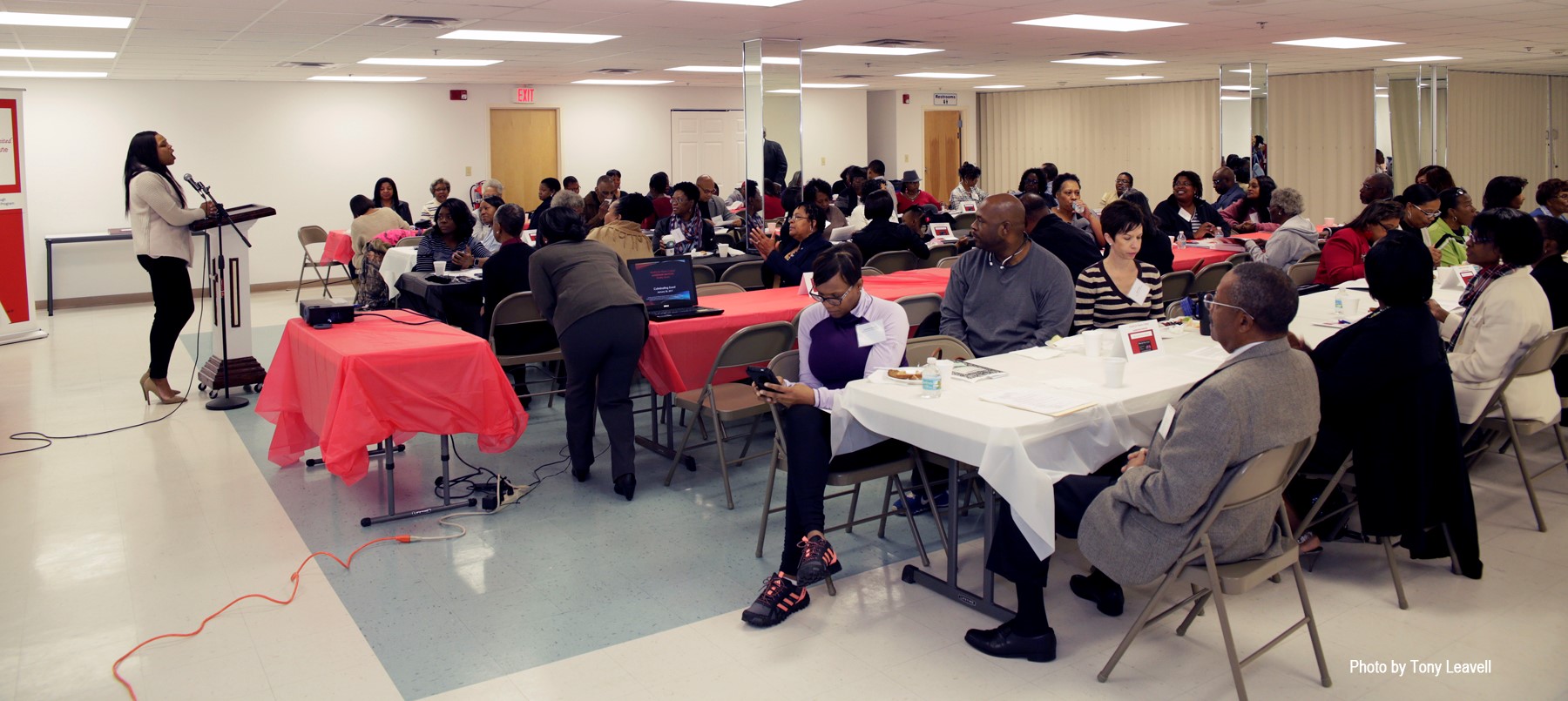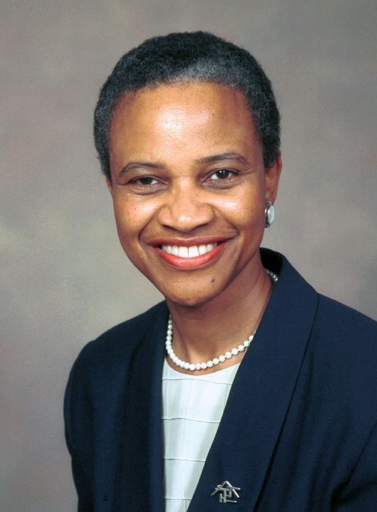
As the nation recognizes American Heart Month this February, Florida State University’s Center on Better Health and Life for Underserved Populations has successfully helped 36 black churches in Leon and Gadsden counties set a foundation for healthier living.
Penny Ralston is the center’s director and dean emeritus of FSU’s College of Human Sciences. She and her research team received multiple grants from the National Institutes of Health beginning in 2008 to determine how effective a church-based health program would be in reducing the risk of cardiovascular disease.
“It’s called community-based participatory research,” Ralston said. “It’s a process where the community not only has input on what you do, but also actually leads what you do.”
They received a subsequent grant in 2013 that ends this month. Although Ralston and her colleagues continue to comb through the data, they can already celebrate positive outcomes that include significant increases in eating fruits and vegetables as well as overall cardiovascular disease knowledge and significant decreases in systolic blood pressure.

“What’s exciting for me is to hear the testimonies of people who’ve made major changes,” Ralston said. “I had one pastor say ‘When this all started I really didn’t care about my health, but this program has been a miracle for me. This was my miracle.’”
Cardiovascular disease is the leading cause of death among Americans, according to the Centers for Disease Control and Prevention in the United States. However, African-Americans are reported to be more impacted by stroke and heart disease than any other group in the United States.
For centuries, the black church has been the hub of the African-American community — a place for fellowship, guidance and restoration.
“There is this sense of community, of family, and then you also have the spiritual aspect,” Ralston said. “We worked with Christian churches, but even across religions there is importance in taking care of yourself. I think that’s a key spiritual principle. In Christian churches, we use biblical scripture because we need motivation. It’s not easy to live healthy. It requires discipline, and we need an anchor. The scriptures and pastors interpreting them can be those anchors.”
During the first five years of the project, six churches in Leon and Gadsden counties were involved. Three churches developed the programming and three comparison churches received the program on a delayed basis. The project was implemented with more than 250 church goers who were 45 years of age and older, including about 100 participants who provided additional clinical information.
The results showed positive outcomes for health behaviors, clinical measures and also selected biomarkers. Although both treatment and comparison churches improved, there were significant improvements for those in the treatment group on several variables.
Based on the positive outcomes of the first project, the subsequent award from NIH in 2013 focused on the establishment of the Health for Hearts United Leadership Institute. Over the next four years, the center implemented the Healthy Hearts Program with pastors and team members from 30 churches in the two counties. They received training, planned their health ministries and delivered cardiovascular disease awareness to nearly 600 outreach participants.
The key messages shared with church and community members focused on eating better, moving around more and taking charge of their health. Each church was required to reach at least 25 people to share information with them about cardiovascular disease and how to control it.
Some churches provided innovative programs including Health Sunday, where services focused on healthier living; weekend health programs, such as health seminars or walks with brief remarks from health professionals and healthy refreshments; and Bible study health programs.
Celebrate New Life Tabernacle in Tallahassee joined forces with the Healthy Hearts Program last year. Health ministry leader Marsha Kelly led the charge to get members of her church motivated to lead healthier lifestyles.
“Because of our culture and how we eat, it’s important to make people aware of the dangers,” Kelly said. “Giving knowledge and getting people moving is critical.”
Kelly’s pastor, Bishop Joseph Henderson, leads the congregation at Celebrate New Life Tabernacle. He dropped 42 pounds by the time the project ended.
“My suits fit better, I was able to shout longer, and I really believe it motivated others,” Henderson said.
Henderson said he would always exercise but it was when he began to eat better that made the difference.
“We learned how important nutrition is coupled with physical exercise,” Henderson said. “Then we began to educate our church on the proper diet and nutrition, which got us involved in activities where we cut back on our sugar and salt intake and got rid of carbonated drinks.”
The church also began exercising together once a month in Tom Brown Park.
“It’s the testimonies of people like Bishop Henderson,” Ralston said. “That’s how you know you’ve made a difference. You know people’s lives are going to be different.”
Above all, it is the potential to impact future generations that Ralston finds most rewarding.
Ralston found that changing one person’s life and behaviors in the household meant that children would benefit and even family members who lived at a distance. In a focus group in the first project, the research team found one participant was calling family in New Jersey and sharing heart healthy recipes.
That’s exactly why Kelly said the church was the right place for this type of research.
“Everyone in the family may not come to church,” she said. “But if at least one does and they start cooking healthier, that can be passed on through the family. When people know better, they do better.”
Henderson, Kelly and Ralston all hope the end of the funding does not mean the end of the Healthy Hearts program.
“I hope what has already transpired will continue to grow,” Henderson said. “I pray that that the churches currently involved will continue to expand it outside of the current areas that are being targeted. The foundation has been laid, and I would love to see it continue to flourish to impact even the state.”
Project collaborators include, among others, Iris Young-Clark, associate director of FSU’s Center on Better Health and Life for Underserved Populations; Arrie Battle, Mother Care Network Inc. in Gadsden County; Jasminka Ilich-Ernst, the Hazel Stiebeling Professor of Nutrition in the FSU Department of Nutrition, Food and Exercise Sciences; Kandauda Wickrama, the Georgia Athletic Association Endowed Professor, University of Georgia; and Cynthia M. Harris, Institute of Public Health, Florida A&M University.
Other partners are FSU alumni Catherine Coccia, Florida International University, and Jennifer L. Lemacks, University of Southern Mississippi.
For more information, contact Ralston at (850) 645-8110 or visit http://bhlcenter.fsu.edu/health-hearts-united.




